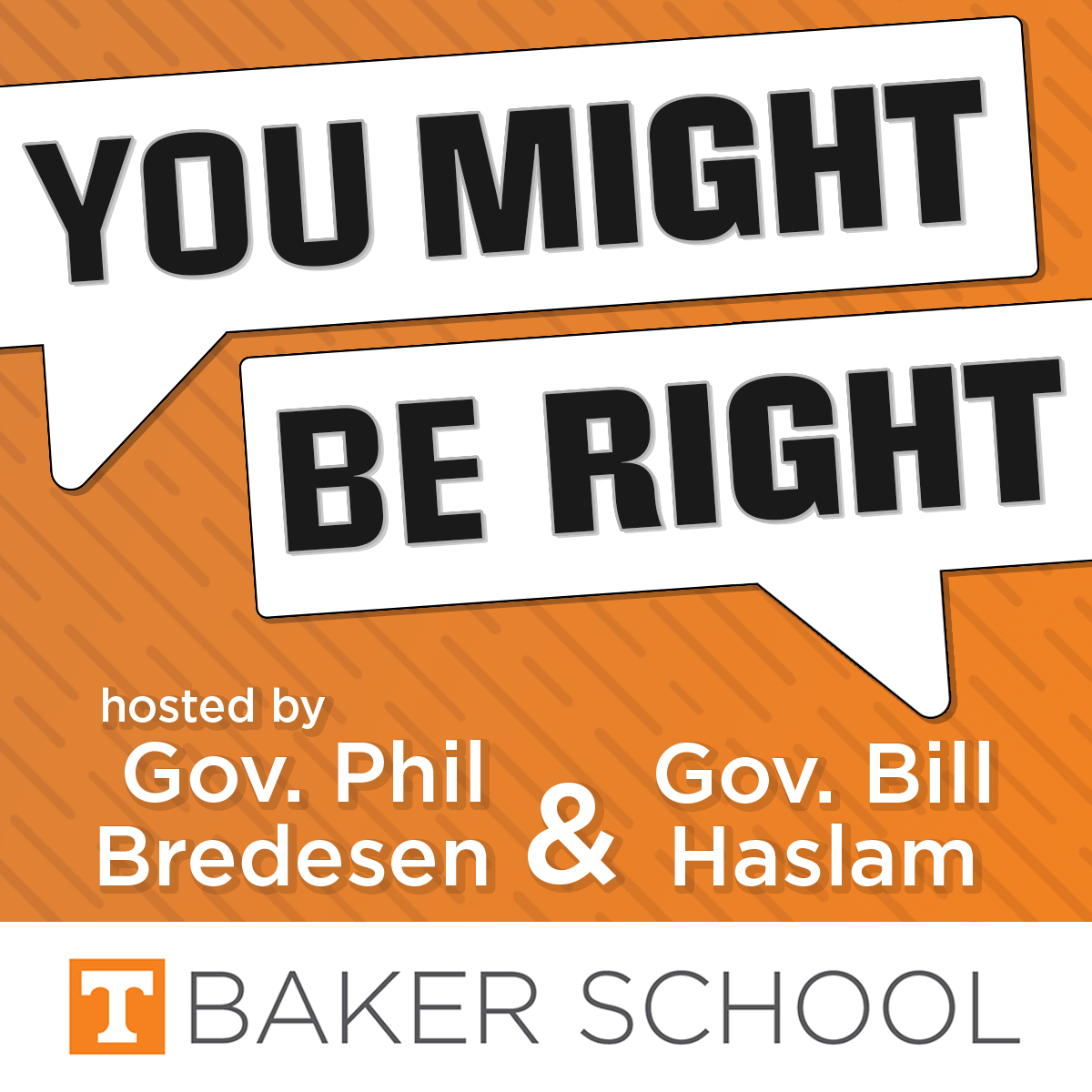What is the Future of Global Trade?
EPISODE 8: FedEx founder and executive chairman Fred Smith and Tim Fitzgerald, former chief international economist at the White House Council of Economic Advisors and a professor at Texas Tech University, join Governors Bredesen and Haslam to discuss the future of global trade.
During the last several decades, global free trade policies have transformed the world. Recent international conflicts and the COVID-19 pandemic, however, have highlighted the risks of over-reliance on the global market. Fredrick W. Smith, founder and executive chairman of FedEx Corporation, and Tim Fitzgerald, former chief international economist at the White House Council of Economic Advisors and a professor at Texas Tech University, join Governors Bredesen and Haslam to discuss how the U.S. can strike a balance between globalization and competing national priorities moving forward.
Subscribe and follow You Might be Right wherever you get your audio content – including Apple Podcasts, Spotify, and Stitcher – to never miss an episode, or sign up for our email list to receive new episodes straight to your inbox each week here.
“Trade among the willing”
Smith kicked off the conversation by highlighting the economic impact of global trade, noting it represents almost 1 out of every 4 dollars in the U.S. economy in terms of economic activity. He also addressed some of the common misconceptions about globalism, noting that automation has had more of an impact on manufacturing in the United States than trade with China and that the prospect of restoring all of that manufacturing in the U.S. is not feasible. So, where does he think things are headed?
“I don’t think trade is going to go away, because we cannot manufacture in this country everything that we need to, to have the standard of living that we have,” Fred Smith told the governors.
“I think what will happen is there will be trade among the willing. I mean, Europe still wants to sell Airbus airplanes in the United States, and Boeing wants to sell Boeing airplanes in Europe. Mercedes wants to sell cars here,” he continued. “And so there will continue to be trade, but I think increasingly China will operate in a closed system. And they seem to be fine with that.”
“The supply chain question cuts both ways”
Fitzgerald addressed a common criticism of global trade and one that has been highlighted by both the COVID-19 pandemic and recent international conflicts: the resilience of the supply chain.
“The supply chain question cuts both ways,” Fitzgerald told the governors. “You may want to have sufficient capacity at home for defensive reasons, but also there is a geographic diversification argument to be made.”
“Two arguments here, and certainly one of them is that relying on a foreign supplier for critical inputs into your economy – and with the Ukraine war, you could certainly think about the situation for natural gas in Europe – might compromise your national security or your defense base or your industrial base in ways that you don’t anticipate and are very unwelcome,” he explained. “A second lesson that I think comes more from the pandemic is that geographic diversification actually provides some more resilience in a supply chain. As we saw the sort of uneven propagation of the virus and pandemic lockdowns around the globe, there were places that were able to provide products.”
Subscribe and follow You Might be Right wherever you get your audio content – including Apple Podcasts and Spotify – to never miss an episode, or sign up for our email list to receive new episodes straight to your inbox each week here.

Join the conversation on Twitter by following @UTBakerSchool, @PhilBredesen, and @BillHaslam.